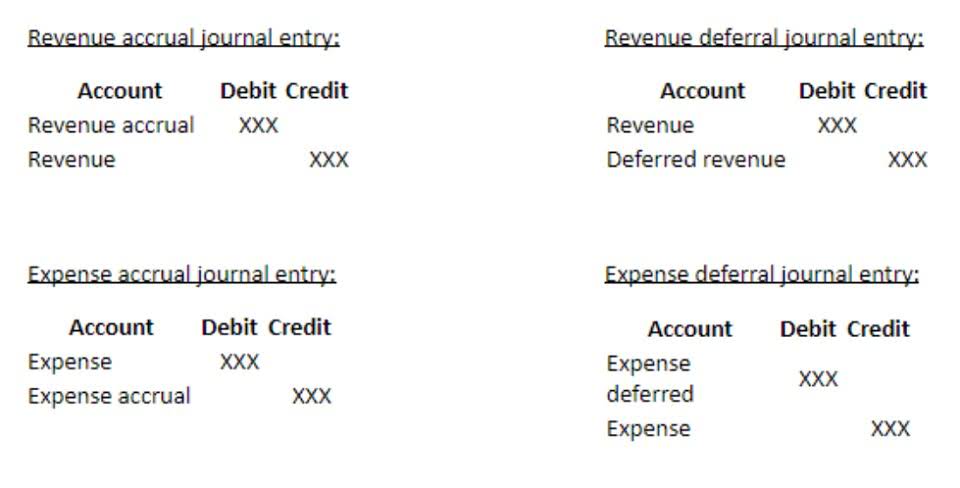
Depreciation entries allow you to account for the gradual wear and tear on your property over its useful life. This is an essential non-cash expense that can significantly reduce your taxable income. Ensure depreciation is calculated and recorded accurately each year to maximize this valuable tax benefit.

Key Real Estate Accounting Entries Every Investor Should Know
- In the real estate industry, where income streams and expenses can vary widely across different properties, periodic audits provide a clear, objective view of financial health.
- Why is cost tracking important in accounting for real estate development?
- Good real estate accounting provides tools and insights for accurate revenue forecasting.
- Finance leaders face increasing pressure to bring clarity, control, and compliance to the rapidly evolving real estate landscape.
- These factors may affect both financial reporting and property valuation methods.
- Regular reviews ensure that businesses leverage CPA expertise effectively.
- Owners and investors rely on this data to make informed decisions.
Additionally, many expenses that can be immediately deducted as an investor are on the closing statement; if you miss them you’ll be stuck with a higher tax bill than necessary. The complexity of real estate accounting underscores the importance of establishing solid financial management practices from the beginning. The complexity of real estate accounting often necessitates professional support, particularly as investment portfolios grow. Professional accountants with real estate expertise provide valuable guidance on tax strategy, compliance requirements, and financial planning. Their knowledge of industry-specific regulations and tax opportunities helps property investors optimize their financial positions while maintaining compliance. Many modern real estate businesses generate income through rental properties.

Journal Entries of Real Estate Companies
- It ensures that properties are consistently depreciated, reflecting their true wear and tear.
- Regular financial reviews ensure that rental incomes are optimized.
- Accurate reporting is essential for informed decision-making, attracting potential investors, and ensuring the business’s sustainability.
- If you’re recording periodic loan payments, you’ll start by applying the payment toward the interest expense.
- Depreciation management represents one of the most complex aspects of real estate accounting.
- Advanced training modules offer insights into modern tools and techniques.
- Understanding these nuances ensures accurate financial reporting tailored to the real estate sector.
When accounting for assets, it’s important to have recorded “accounts receivable”. What’s nice about digital accounting is that it’s much easier to find transaction information than in traditional bookkeeping. Let’s say that you wanted to review transactions made on March 9, 2016. But, when the records are stored digitally, all you’ve got to do is enter a few words into the search bar. Not only that, but it’s generally agreed upon that if you want to turn a profit and generate substantial wealth, you must invest in a multitude of properties. That’s a lot of assets, a lot what are retained earnings of speculation, and a lot of numbers to crunch; and that’s why having accurate accounting is a must.
Tax Considerations
For real estate professionals, showcasing financial stability is a core skill. Accurate showcasing ensures that businesses present a strong financial image. It’s a critical aspect of successful real estate accounting that enhances market reputation. Capital expenses enhance property value, while operational expenses maintain it. Differentiating between the two is crucial for accurate financial reporting. Real https://www.amalorto.it/bookkeeping-2/quickbooks-proadvisor-certification-how-to-become/ estate accounting software offers features to streamline this differentiation.
Seamless Data Transfer Between Platforms
Many closing costs can be deducted or capitalized real estate accounting entries depending on their nature. Recurring costs such as property taxes or interest are often deductible in the period they are incurred, providing immediate tax benefits. Gains from property sales are subject to capital gains tax, which varies based on the asset’s holding period.
Staying updated with tax codes, understanding property tax implications, and collaborating with tax professionals are essential. These measures ensure that businesses remain compliant and optimize their tax strategies. Streamlining real estate business accounting is essential for operational efficiency.

The assessment will be broken into the land value and the value of buildings/improvements. You will need to determine the ratio of the buildings/improvements value to the total property value. The first step toward recording your property purchase is to determine your starting cost basis in the property. For example, let’s say John sells a property worth $11,000 and receives $10,000 in cash. The difference, or plug, represents the amount spent on closing costs. There may be mortgages or even gains or losses in the value of the property, but we’ll address them in scenarios 2 and 3 below.
- Inventory is removed from the balance sheet while the deferred gross profit will increase $ 50,000 as a current liability.
- This method offers a more accurate picture of a property’s financial health.
- Deferred expenses, like prepaid maintenance contracts, are future expenses paid in advance.
- Developers use specialized real estate accounting software to ensure these costs are managed efficiently.
- When we buy or build a fixed asset, we spend money and gain an asset; the property is booked as a debit to our books.
- Financial stability is a key indicator of a successful real estate business.
Short-term gains, for properties held less than a year, are taxed at ordinary income rates, while long-term gains benefit from reduced rates. Accurate calculation and reporting of these gains are essential for compliance with tax regulations. Property investors must understand these fundamental concepts to make informed decisions about their investments and maintain accurate financial records. The process of property management is incredibly expensive, and one of the biggest mistakes we see is misclassifying the finances of the company. It is essential to maintain clear and detailed financial records for your business in order to keep it running smoothly. The company may sell or lease the property if it’s no longer needed for business operations.
- Real estate accounting software offers tailored solutions for lease management and billing.
- The Internal Revenue Code provides specific guidelines for deprecating real estate assets, with different periods for residential and commercial properties.
- On 01 August, company sells a car to a customer for $ 200,000 while its cost is $ 150,000.
- This section delves into strategies to enhance accounting processes.

This analysis guides future property investments and strategies, ensuring that every dollar invested works for the business. By understanding the returns on various properties, owners can prioritize investments, allocate resources effectively, and maximize profitability. It’s a strategic approach that ensures the long-term success of a real estate business.
